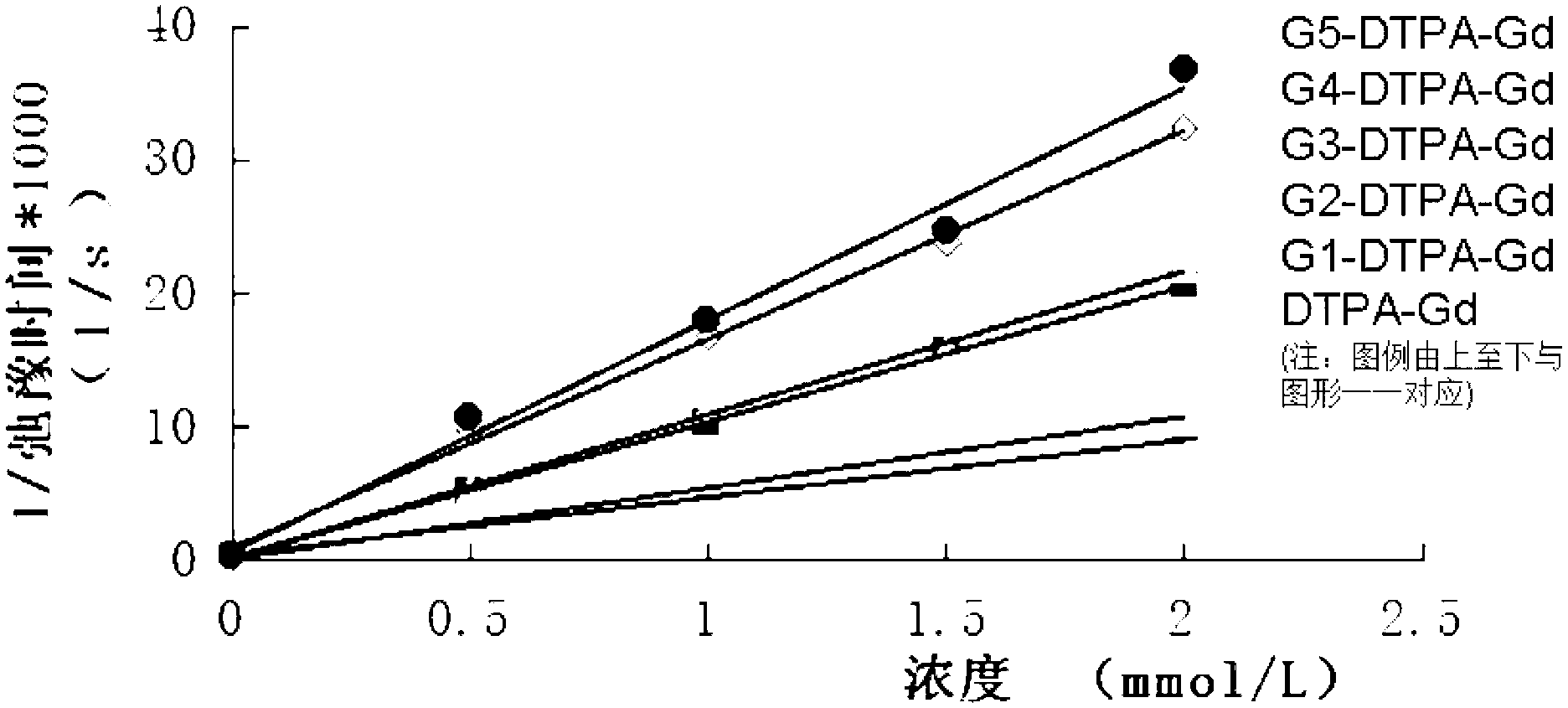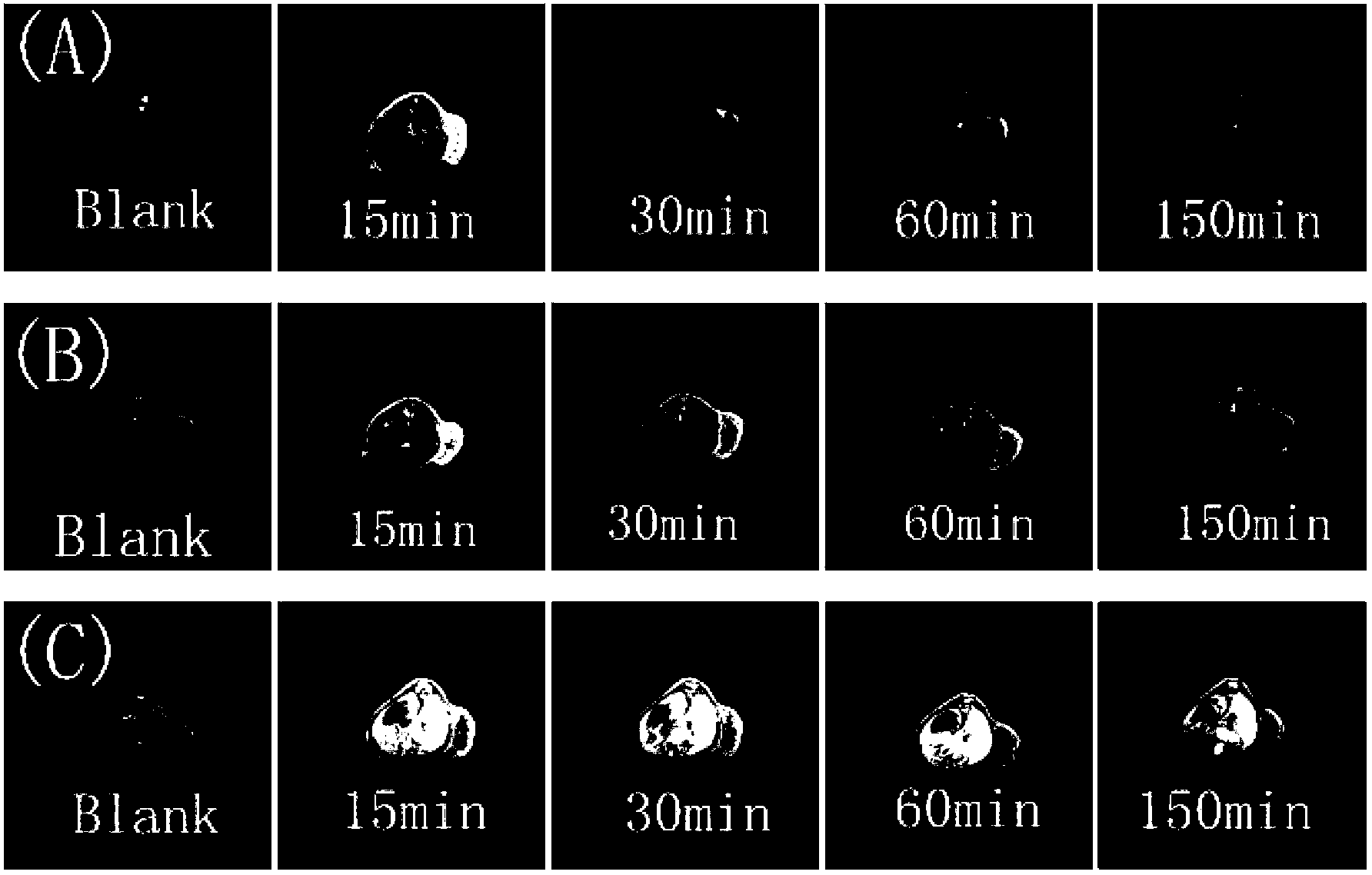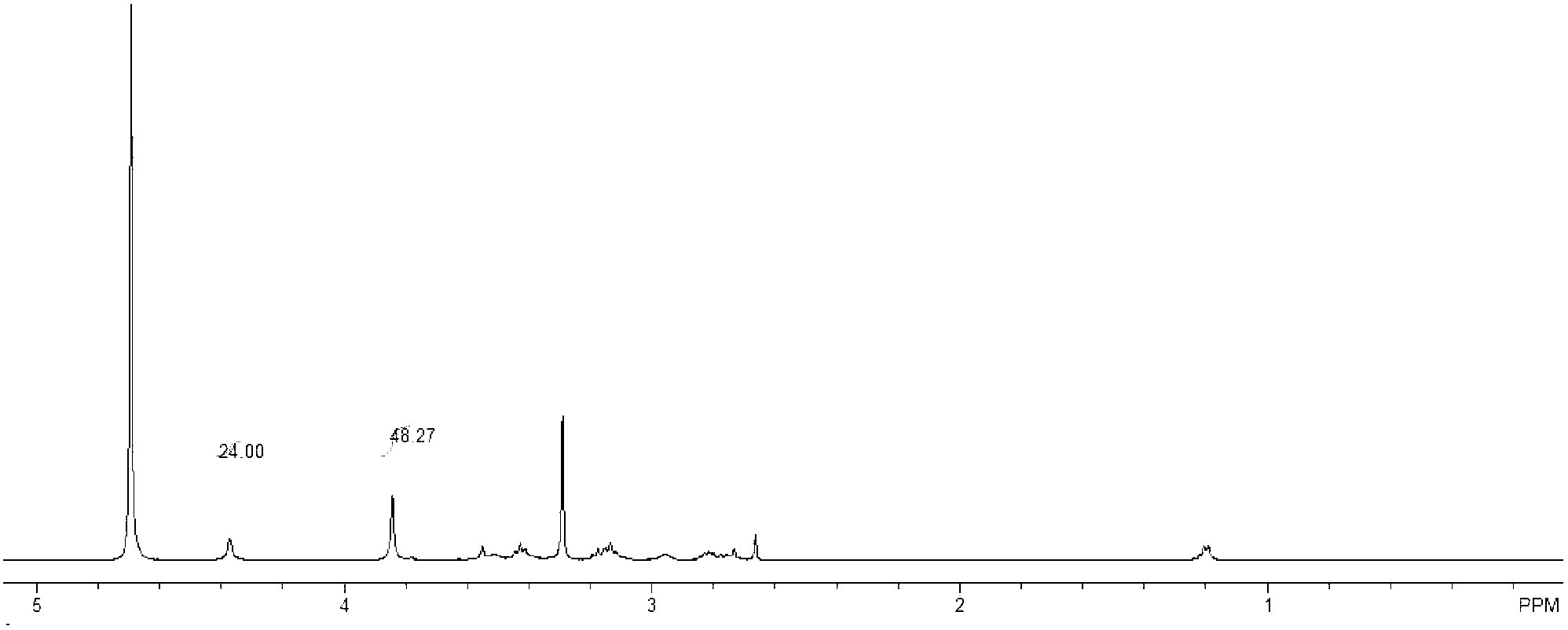Degradable dendritic macromolecule magnetic resonance contrast agent and preparation method thereof
A magnetic resonance contrast agent and macromolecular technology, which is used in medical preparations, pharmaceutical preparations, and preparations for in vivo experiments with inactive ingredients, etc., can solve the problems of difficult molecular weight control, low contrast efficiency, and wide distribution, and achieve Simple operation, good imaging effect, and the effect of improving the level of diagnosis
- Summary
- Abstract
- Description
- Claims
- Application Information
AI Technical Summary
Problems solved by technology
Method used
Image
Examples
Embodiment 1
[0039] Example 1 Synthesis of the first generation dendrimer contrast agent
[0040] The synthesis process contains three steps: (1) activation of DTPA; (2) synthesis of dendrimer ligand; (3) synthesis of dendrimer contrast agent.
[0041] (1) Activation of DTPA
[0042] NHS (2.108g) and DCC (3.78g) were dissolved in 40mL and 60mL of acetonitrile, respectively, and added dropwise to DTPA (12.005g) in acetonitrile in an ice bath. Reaction at room temperature for 8h. DCC was removed by filtration, acetonitrile was removed by rotary evaporation, and the product was dissolved in 30 mL dimethyl sulfoxide (DMSO) to obtain a DTPA-NHS solution.
[0043] (2) Synthesis of dendrimer ligands
[0044]
[0045] Tris(2-aminoethyl)amine (0.2g, 1.37mmol) shown in formula II and MAEA (2g, 10.94mmol) shown in formula III were reacted in an oil bath at 50°C for 48 hours to obtain the first generation poly Ester dendrimer G1.
[0046]
[0047] The first generation polyester dendrimer G 1...
Embodiment 2
[0053] Example 2 Synthesis of Second Generation Dendrimer Contrast Agent
[0054] (1) Activation of DTPA
[0055] NHS (2.108g) and DCC (3.78g) were dissolved in 40mL and 60mL of acetonitrile, respectively, and added dropwise to DTPA (12.005g) in acetonitrile in an ice bath. Reaction at room temperature for 8h. DCC was removed by filtration, acetonitrile was removed by rotary evaporation, and the product was dissolved in 30 mL DMSO to obtain a DTPA-NHS solution.
[0056] (2) Synthesis of dendrimer ligands
[0057] Dissolve the first generation polyester dendrimer G1 (1.5100g, 1.2mmol), cysteamine (0.6376g, 8.28mmol) and MAEA (9.14g, 49.68mmol) in 7mL DMSO, react at room temperature for 24h, 50℃ The oil bath reaction was carried out for 48 hours to obtain the second generation polyester dendrimer G2.
[0058]
[0059] Dissolve the second-generation polyester dendrimer G2 (0.3082g, 0.07653mmol) and cysteamine (0.0849g, 1.102mmol) in 2mL DMSO, react at room temperature for ...
Embodiment 3
[0064] Example 3 Synthesis of the third generation dendrimer contrast agent
[0065] (1) Activation of DTPA
[0066] NHS (2.108g) and DCC (3.78g) were dissolved in 40mL and 60mL of acetonitrile, respectively, and added dropwise to DTPA (12.005g) in acetonitrile in an ice bath. Reaction at room temperature for 8h. DCC was removed by filtration, acetonitrile was removed by rotary evaporation, and the product was dissolved in 30 mL DMSO to obtain a DTPA-NHS solution.
[0067] (2) Synthesis of dendrimer ligands
[0068] The second generation polyester dendrimer G2 (1.0755g, 0.2725mmol), cysteamine (0.2882g, 3.7605mmol) and MAEA (2.4221g, 13.1618mmol) were dissolved in 5mL DMSO and reacted at room temperature for 24h, 50 ℃ oil bath for 48 hours to obtain the third generation polyester dendrimer G3.
[0069]
[0070] Dissolve the third-generation polyester dendrimer G3 (0.4g, 0.0292mmol) and cysteamine (0.0648g, 0.841mmol) in 2mL DMSO, react at room temperature for 1.5h, and ...
PUM
 Login to View More
Login to View More Abstract
Description
Claims
Application Information
 Login to View More
Login to View More - R&D
- Intellectual Property
- Life Sciences
- Materials
- Tech Scout
- Unparalleled Data Quality
- Higher Quality Content
- 60% Fewer Hallucinations
Browse by: Latest US Patents, China's latest patents, Technical Efficacy Thesaurus, Application Domain, Technology Topic, Popular Technical Reports.
© 2025 PatSnap. All rights reserved.Legal|Privacy policy|Modern Slavery Act Transparency Statement|Sitemap|About US| Contact US: help@patsnap.com



